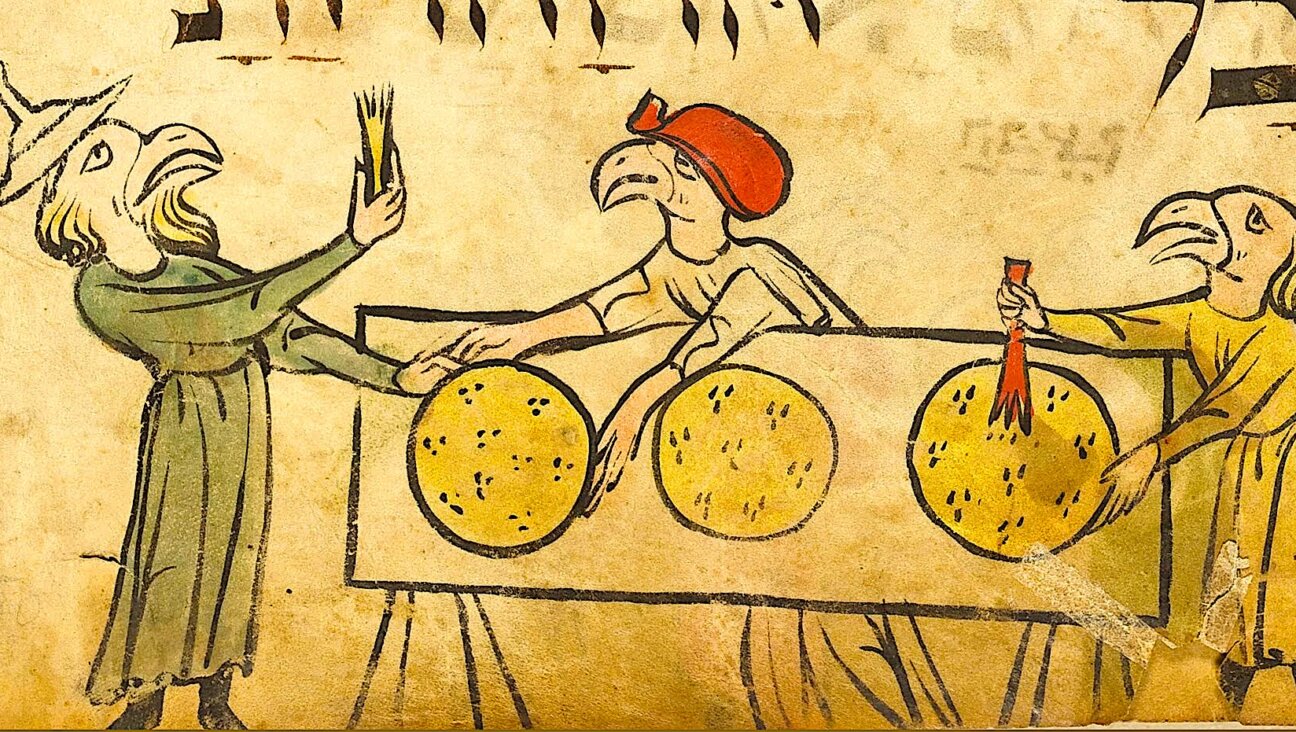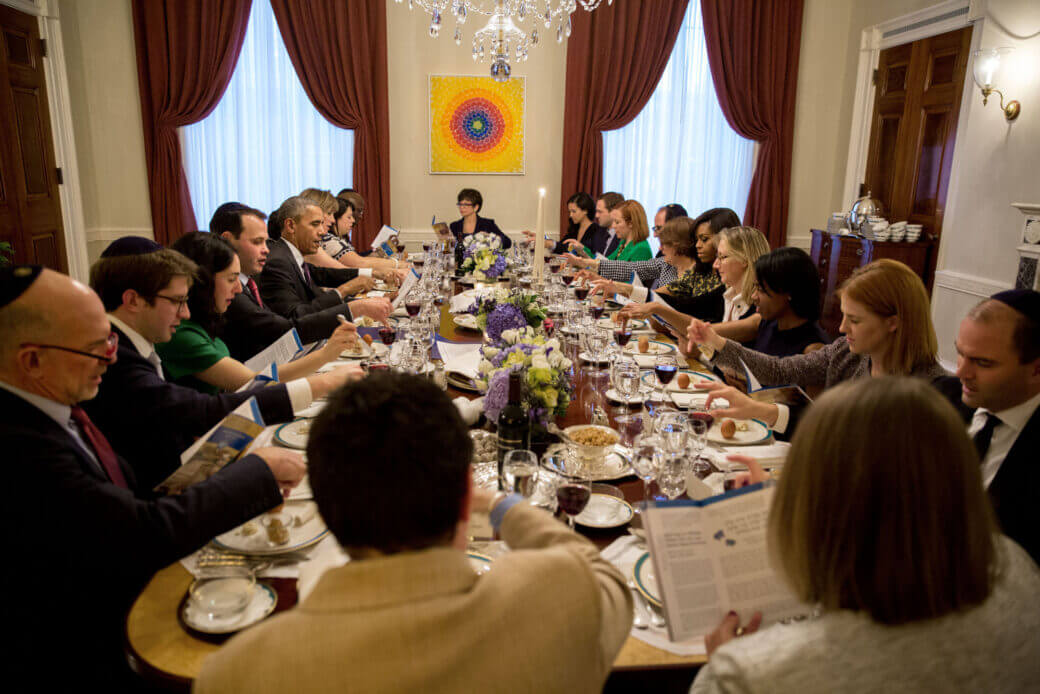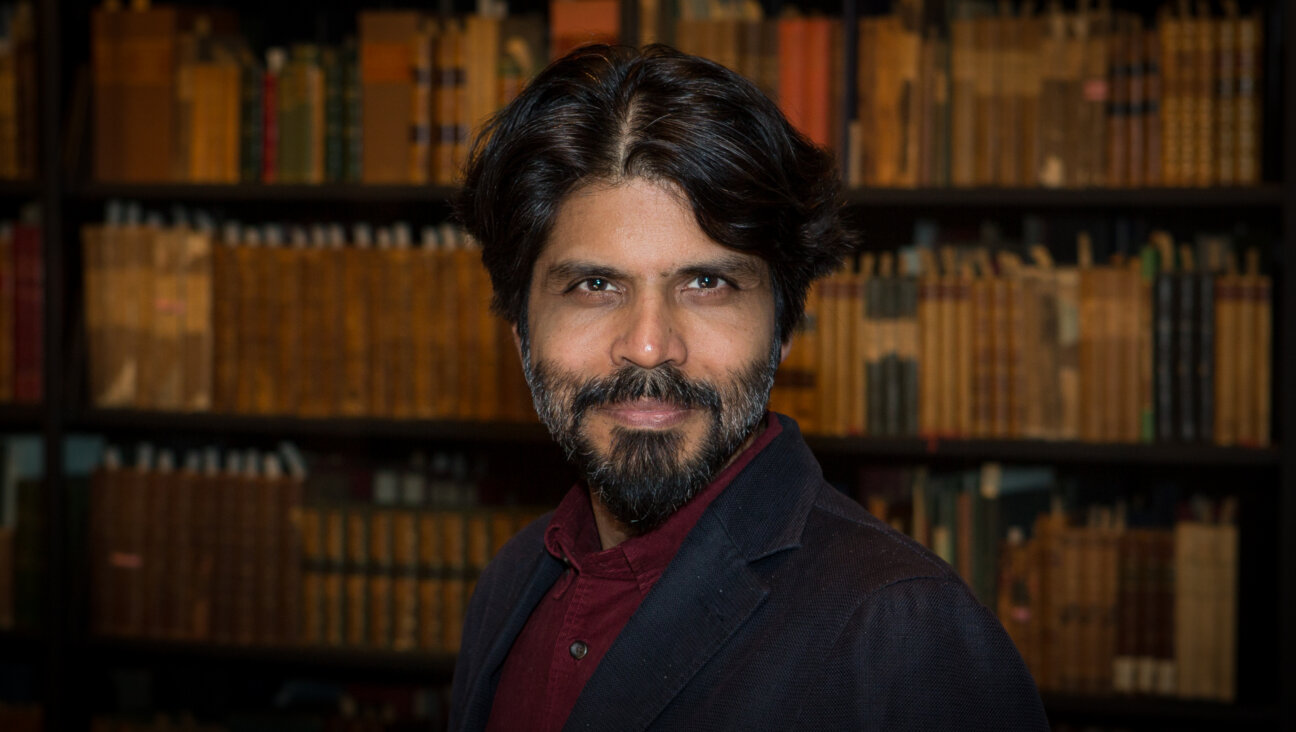The Surprise Literary Sensation Sweeping France
This year’s French literary sensation is quite a surprise, not least because she is a long-forgotten Jewish writer who died in Auschwitz.
Irène Némirovsky was born into a wealthy Ukrainian family in 1903 and grew up among Kiev, Saint Petersburg and Riviera palaces. Following the Bolshevik Revolution, her family joined the ranks of White Russian émigrés in France, where Némirovsky entered the Sorbonne. She began publishing short stories and soon joined Parisian literary circles. By 1934, however, she was voicing concern about antisemitic agitation; by 1938, she was petitioning (in vain) for French citizenship; by 1940, she and her family had abandoned Paris for a village in Burgundy.
When the police arrested Némirovsky two years later, she left behind two young daughters and a suitcase containing the manuscript of a novel about wartime France, “Suite française.” Both girls survived in hiding, but decades elapsed until they dared open the suitcase. The novel was published just a few months ago in France. To date, it has won a prestigious book prize and continues to dominate the French best-seller lists. More than 20 countries have bought translation rights, with Knopf releasing the work here next year.
During the 1940s and ’50s, most novels about Vichy France either glorified the resistance or criticized a cowardly population. Without absolving anyone of responsibility, Némirovsky proposes that between the poles of diehard resistance and collaboration, most French men and women sought to endure and recover some normalcy. Few could draw on coherent moral or ideological codes. Few, therefore, understood fully why they acted as they did or what their actions might mean to others. “Suite française” suggests that the dividing line between one path and another was often razor thin. In this respect, this is very much a novel of our time, in which nothing can be as simple as it appears and ideological boundaries are blurry. The novel’s success in France shows not only that the country’s “dark years” continue to fascinate, but also that there is a growing willingness to perceive this period in its full ambiguity.
The first part of “Suite française” recounts the exode of June 1940, the millions of French civilians and soldiers who fled south as the Germans advanced. Némirovsky depicts unsavory Parisian types: the “self-righteous” curator and his wife, the cantankerous writer and his mistress, the callous banker, the ballerina on the wane. All end up in the indifferent and “hostile” human magma that engulfs the roads of France. Few people look good in this France, but the capital’s elites are truly despicable in their sense of entitlement, their materialism and their disdain for a populace that clogs their escape route. This damning portrait was Némirovsky’s revenge against the literati, publishers and politicians who had abandoned her to her fate.
Such retribution does not, alas, make for great literature and, given its late publication, this section tells us little we do not already know about the exode. The second part of the book, however, is a nuanced account of daily life in an occupied village in Burgundy. Because she had no scores to settle here, Némirovsky captures with acuity and empathy the cycle of fear and complacency, the disputes over wheat and coal, the indignities large and small that imprinted everyday life. Most impressively, she conveys the population’s complex feelings toward the German troops. There was shame and repulsion, yes, but also an eerie fascination before this spectacle of youth and order, metal and leather. Tacit rules of behavior emerge (never discuss the war with soldiers!), but who could distinguish right from wrong when the enemy, a human being with a name and a family, lived in one’s own home?
To reflect this, her book features a relationship between a young French woman and an urbane German officer who is billeted in her house. The two develop a deep platonic friendship with an outcome that long remains uncertain. When an outside event eventually forces this woman to commit herself politically, her heroism seems accidental. At the liberation, her neighbors could have lionized her as a resister or they could have shaved her head for “horizontal collaboration.” Both outcomes were equally plausible.
One struggles to explain, however, why the novel sidesteps the fate of Jews. Maybe the chronicler in Némirovsky limited herself to what she observed; most villages, after all, had no Jewish residents. The Jewish question was important in early 1942, but so were food and coal shortages, rationing, requisitions, repression and 2 million prisoners of war. More relevant may be Némirovsky’s own tortured relationship with Judaism. As she saw it, cosmopolitan, money-hungry Jews from Eastern Europe shared little with those urbane, patriotic “Israelites” who had long assimilated into French society (and who represented the ideal to which she apparently aspired). As antisemitism grew during the 1930s, references to Judaism dwindled in her novels until they vanished altogether.
Finally, and most problematically, there is Némirovsky the novelist. Did she skirt her writerly responsibility to probe her social world in all its dimensions? Or did she conclude that grasping the complexity of human behavior at that moment required an outward rather than an inward gaze? It is difficult to tell. But on June 2, 1942, she wrote in her journal, “Reread Tolstoy.” A month later, she was deported.
Stéphane Gerson is assistant professor of French and French Studies at New York University. His book, “The Pride of Place: Local Memories and Political Culture in Nineteenth-Century France”(Cornell University Press), won the 2003 Jacques Barzun Prize in Cultural History.
The Forward is free to read, but it isn’t free to produce

I hope you appreciated this article. Before you go, I’d like to ask you to please support the Forward.
At a time when other newsrooms are closing or cutting back, the Forward has removed its paywall and invested additional resources to report on the ground from Israel and around the U.S. on the impact of the war, rising antisemitism and polarized discourse.
Readers like you make it all possible. We’ve started our Passover Fundraising Drive, and we need 1,800 readers like you to step up to support the Forward by April 21. Members of the Forward board are even matching the first 1,000 gifts, up to $70,000.
This is a great time to support independent Jewish journalism, because every dollar goes twice as far.
— Rachel Fishman Feddersen, Publisher and CEO
2X match on all Passover gifts!
Most Popular
- 1

News A Jewish Republican and Muslim Democrat are suddenly in a tight race for a special seat in Congress
- 2

Film & TV What Gal Gadot has said about the Israeli-Palestinian conflict
- 3

Fast Forward The NCAA men’s Final Four has 3 Jewish coaches
- 4

Fast Forward Cory Booker proclaims, ‘Hineni’ — I am here — 19 hours into anti-Trump Senate speech
In Case You Missed It
-

News Who would protect New York Jews better? Cuomo and Lander trade attacks on the campaign trail
-

News Rabbis revolt over LGBTQ+ club, exposing fight over queer acceptance at Yeshiva University
-

Opinion In Qatargate fiasco, Netanyahu’s ‘witch hunt’ narrative takes cues from Trump
-

Yiddish די הגדה ווי אַ לעבעדיקער דענקמאָל פֿון אַשכּנזישער פּאָעזיעThe Haggadah as a living monument to Ashkenazi poetry
אַמאָל זענען די פּייטנים, מיסטישע דיכטער־וויזיאָנערן, געווען אויבן־אָן בײַ די פֿראַנצויזישע און דײַטשישע ייִדן.
-
Shop the Forward Store
100% of profits support our journalism
Republish This Story
Please read before republishing
We’re happy to make this story available to republish for free, unless it originated with JTA, Haaretz or another publication (as indicated on the article) and as long as you follow our guidelines.
You must comply with the following:
- Credit the Forward
- Retain our pixel
- Preserve our canonical link in Google search
- Add a noindex tag in Google search
See our full guidelines for more information, and this guide for detail about canonical URLs.
To republish, copy the HTML by clicking on the yellow button to the right; it includes our tracking pixel, all paragraph styles and hyperlinks, the author byline and credit to the Forward. It does not include images; to avoid copyright violations, you must add them manually, following our guidelines. Please email us at [email protected], subject line “republish,” with any questions or to let us know what stories you’re picking up.















